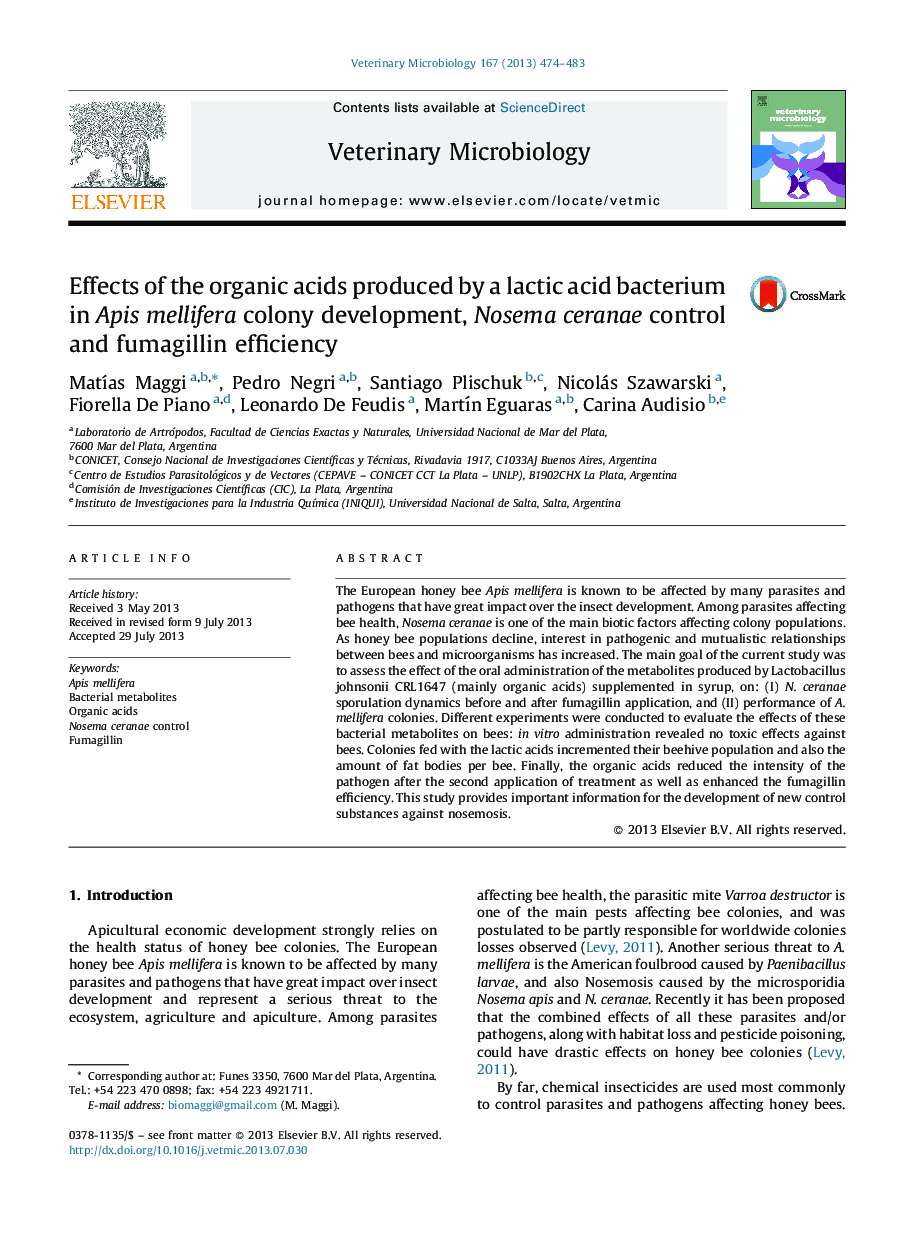| Article ID | Journal | Published Year | Pages | File Type |
|---|---|---|---|---|
| 5800958 | Veterinary Microbiology | 2013 | 10 Pages |
The European honey bee Apis mellifera is known to be affected by many parasites and pathogens that have great impact over the insect development. Among parasites affecting bee health, Nosema ceranae is one of the main biotic factors affecting colony populations. As honey bee populations decline, interest in pathogenic and mutualistic relationships between bees and microorganisms has increased. The main goal of the current study was to assess the effect of the oral administration of the metabolites produced by Lactobacillus johnsonii CRL1647 (mainly organic acids) supplemented in syrup, on: (I) N. ceranae sporulation dynamics before and after fumagillin application, and (II) performance of A. mellifera colonies. Different experiments were conducted to evaluate the effects of these bacterial metabolites on bees: in vitro administration revealed no toxic effects against bees. Colonies fed with the lactic acids incremented their beehive population and also the amount of fat bodies per bee. Finally, the organic acids reduced the intensity of the pathogen after the second application of treatment as well as enhanced the fumagillin efficiency. This study provides important information for the development of new control substances against nosemosis.
